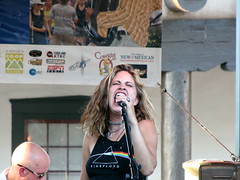 Dr. Karen Gail Lewis is a great supporter of SWWAN. She’s been working with us for the past 3 years in many ways. We are thrilled to have her share one of her articles as our first Single Working Women’s Week guest blogger. Love to hear your thoughts on this tell-it-like-it-is post.
Dr. Karen Gail Lewis is a great supporter of SWWAN. She’s been working with us for the past 3 years in many ways. We are thrilled to have her share one of her articles as our first Single Working Women’s Week guest blogger. Love to hear your thoughts on this tell-it-like-it-is post.
“Single Women, Stop Defending Yourself!”
“Proud to be single.” “Single by choice.”
Why do people who have not signed a legal document of marriage need to proclaim their feelings about their life position?
It is a shame women have to take a stance one way or another on their feelings about being single. Wouldn’t it be great if there were no more value judgment about being single than about the length of your fingernails? Sometimes they’re long and sometimes they’re short. But you aren’t treated differently because of their length. You don’t have to sing to the world that you like short nails or you’re proud of your long nails. Unfortunately, that non-judgmental thing is not the case in our society.
People who have signed the legal document of marriage don’t say they are proud to be married or married by choice. People in a majority (whether this is economics, racial, gender, or life position) take their place of privilege for granted. It’s only the minority [note from BP: Society’s conventions and rewards are designed mainly for marrieds and thus tend to make singles feel like a minority even though single women are now actually a 51% majority in America!] who may feel the need to sing out the praises for “not being married.” It sounds like what it probably is: a defense against others’ expectations – that everyone should be married. Too bad others often hear it as “Me thinks thou doth protest too much.”
Think about this: why do you need to laud your life position? If it weren’t that you are fighting off what others think you should do, would you need to?
I understand, though, I write as a woman who just turned 64. I write as a family therapist who specializes in singles (always single and single again). I also write as someone who has researched and published a lot about singles (see With or Without A Man: Single Women Taking Control of Their Lives). One of the many things I’ve learned is that singles of different decades view their life position differently.
Prior to age 30 people feel free not to have to follow society’s traditional rules. Women and men no longer feel compelled to find a mate in their 20s, get married, and start a family. There is more freedom to explore their social world, focus on career, hang around with the opposite sex, have sex – all without expectations that you must “settle down.”
“Settle down.” What a stifling phrase. It sounds like you can be yourself up until the time you “settle down” and have to stop being yourself. Settle down to what?
After age 30, though, women are continually warned about the “ticking clock.” While they may not feel pressured about having children at this point, others certainly are wanting to pressure them. And, by the end of their 30s, most women have given in; that ticking becomes deafeningly loud.
Once women enter their 40s, they either have to change their song or they have to put on a good front. It’s hard to sound proud of something that you don’t feel you have any choice about—the fact is, you can’t make an appropriate man appear in life. Or, you can put on a good front while you sing the old song, knowing it may no longer be in tune.
Women in their late thirties and older need support for not falling into the trap of having to take a stand on how they feel about being single. They need support for the variety of feelings they have—sometimes it’s great and freeing being single, sometimes it can feel sad or lonely [BP note: just like being married!]. And sometimes it’s not an issue at all. Women need support to avoid the self-blame for why they don’t have a man. Mostly, they need support to push back against our culture that pressures women into how they should be feeling as a single woman.
If you want information about a source of great support, check out my Unique Retreats for Women weekend. And, be sure to get your 15 Golden Rules For Being An Emotionally Healthy Single Woman.
Dr. Karen Gail Lewis, author of With or Without A Man: Single Women Taking Control of Their Lives, and other books for singles, is a marriage and family therapist (39 years). Her most recent book is Why Don’t You Understand? A Gender Relationship Dictionary She has a practice in Cincinnati and in Washington, DC. She is available for phone consultations, 513-542-0646.


![Reblog this post [with Zemanta]](http://img.zemanta.com/reblog_e.png?x-id=a3e3bee9-368d-487a-90fc-e7b4660d477f)
![Reblog this post [with Zemanta]](http://img.zemanta.com/reblog_e.png?x-id=68d2e63b-525b-4a48-a7ff-f23f9bc653ed)
 Discovered a cool Twitterer the other day, Jeanine, who writes about SinglePhobia. Having become a college student later in life—going for a second degree—she was surprised to find how negatively single people were presented in her university textbook. Happily, she agreed to contribute to our SWWAN blog…
Discovered a cool Twitterer the other day, Jeanine, who writes about SinglePhobia. Having become a college student later in life—going for a second degree—she was surprised to find how negatively single people were presented in her university textbook. Happily, she agreed to contribute to our SWWAN blog…![Reblog this post [with Zemanta]](http://img.zemanta.com/reblog_e.png?x-id=a9747d4c-ddb2-47ce-97f9-c792f316afee)
